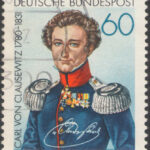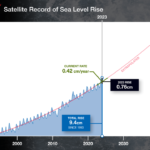December 29, 2019 – From the development of room-temperature quantum computing chips to quantum supremacy, we were teased by an industry that continues to under-deliver when it comes to commercial quantum computing. Other than new announcements from D-Wave continuing to add qubits to its computing platform, to IBM’s “the biggest yet” 53-qubit device, it seems the activity is there but the kind of results are hitting any consumer hot buttons.
So here are four quantum computing stories that made news in 2019.
- A Hoboken, New Jersey, school, the Stevens Institute of Technology, was associated with a new chip with a defined “racetrack structure” for photons capable of doing advanced quantum calculations at room temperature. Called the “holy grail” of quantum computing, researchers in the Center for Quantum Science and Engineering published a paper on this entitled, “Ultra-efficient frequency conversion in quasi-phase-matched lithium niobate microrings.” Does this mean we will see a quantum computer on the average desk in ten years? Highly unlikely.
- We got a peek at what may become the quantum Internet in 2019 with the first launch of a Chinese quantum satellite and plans by the country to launch even more by 2030. The idea is to build a global quantum communications network. Research in support of the quantum Internet included an article that appeared in Nature with the following obscure title, “Angular momentum transfer from photon polarization to an electron spin in a gate-defined quantum dot.” What it described was the use of laser light to transmit information via quantum dots and involving changing the spin rates of individual electrons. The end result could be a highly secure Internet by 2030 for use by universities, the military, government, and other specialized applications.
- MIT and Dartmouth researchers discovered ways to make quantum computing less subject to disruption from “noise” that destroys fragile quantum states. The work involved developing tools to protect qubits from “dephasing” noise that disturbs their coherence. This type of noise can flip the state of qubits and through the sending of modified pulse sequences ended up filtering out the noise. The paper describing the new tool and its purpose appeared in the journal Nature Communications in an article entitled, “Non-Gaussian noise spectroscopy with a superconducting qubit sensor.” Muffling this type of noise will lead to more stable quantum computing once it becomes more widely used.
- Google announced it had demonstrated quantum supremacy over the fastest conventional supercomputers on the planet. In an experiment involving random number generation a quantum computing device named Sycamore performed a calculation in 3 minutes and 20 seconds that the most powerful supercomputer, Summit, would have taken an estimated 10,000 years to compute. This marked the first time that a quantum computer did something that no conventional, even supercomputer, could achieve. Some scientists compared the Google achievement to the first flight of the Wright brothers. What immediate applications come to mind for a quantum device capable of doing this type of calculation? Quantum simulations for theoretical physics, new cryptocurrencies and cryptographic protocols, new drug and material science discoveries, and developing new supply chain efficiencies come to mind.
















